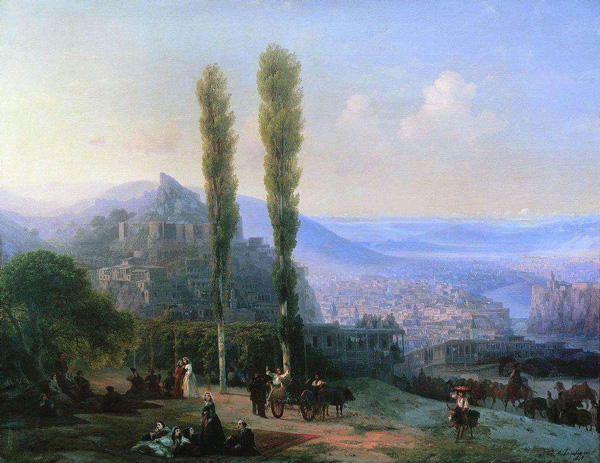На хо´лмах Гру´зии лежи´т ночна´я мгла´;
Шуми´т Ара´гва пре´до мно´ю.
Мне гру´стно и легко´; печа´ль моя´ светла´;
Печа´ль моя полна´ тобо´ю,
Тобо´й, одно´й тобо´й...Уны´нья моего´
Ничто´ не му´чит, не трево´жит,
И се´рдце вновь гори´т и лю´бит — оттого´,
Что не люби´ть оно´ не мо´жет.
